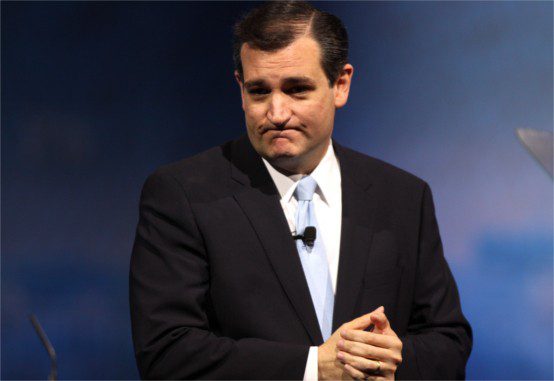Why the Anti-Trump Candidates Fail

Reihan Salam imagines how Trump might be stopped:
If Rubio needs to seem shrewder and sharper than he has in the past, Cruz needs to seem less nakedly ambitious and more humane. To create the perfect Trump-killer, one would ideally merge the two Cuban American senators into a single Voltron-like Republican presidential candidate, who would combine Cruz’s prosecutorial intensity and hard-line immigration stance with Rubio’s reformist impulses and his optimistic and inclusive tone. Short of such an unholy amalgamation, anti-Trump conservatives are going to have many sleepless nights over the coming weeks.
So both of Trump’s closest rivals need to be something other than what they are, and ideally they should become a tertium quid that neither of them can be alone. In short, anti-Trump Republicans are in a lot of trouble. The candidate that might be able to block him doesn’t exist, and the two that theoretically have the best chance of doing so are currently in a death grapple with each other. Like the anti-Romney candidates before them, the anti-Trump candidates are so busy fighting one another to be the alternative that they have missed their best chance to stop him. That opportunity may have already come and gone. If they haven’t missed it entirely, they probably have only a few weeks left, but the candidates aren’t acting like that.
William Saletan likens Cruz’s strategy to Assad’s in the Syrian civil war (i.e., destroy all but the worst alternative to make yourself appear preferable), but the same could be said of any of the anti-Trump candidates. This is why Bush and his allies have been trying to obliterate Rubio with negative ads, and it’s why Rubio has been going after Cruz over his record of political “calculation.” Each of them imagines that he will emerge as the last man standing against Trump, and will then be seen as the better option, but as Cruz has been learning in the last week that isn’t necessarily what will happen. Cruz might think he’s the dictator in this scenario, but as far as many party leaders are concerned he’s the fanatic to be stopped at all costs.
Just as the anti-Romney candidates did in 2012, the anti-Trump candidates still can’t believe that enough Republican voters will vote for the person they say they are supporting. They wrongly assume that they have the luxury of knocking off their non-Trump rivals first and then taking care of the main opponent. While they do that, Trump keeps building on his lead everywhere and bizarrely faces minimal resistance. Despite rule changes, schedule changes, and the absurdly large field of candidates, the Republican nomination contest is so far unfolding very much the way it did four years ago. The difference this time is that the front-runner may be much more dominant than in 2012.
As Noah Millman explained a few days ago, Trump may be on track for an exceptionally strong performance throughout the primary season:
If Trump wins both Iowa and New Hampshire, and then goes on to win South Carolina and Nevada — as he is favored to do — he could very conceivably win every contest, or at worst lose a favored son state or two like Cruz’s Texas. Nobody has run the table like that — not Nixon in 1968, nor Reagan in 1980, nor Bush in 2000.
If that happens, Trump will have his rivals to thank for squabbling among themselves instead of focusing their attacks on him, but it will have happened mainly because of the breadth of Trump’s support across the GOP and across different regions of the country. His advantage with moderate Republicans gives him an edge over Cruz in the Midwest and Northeast, and his apparent staying power with many conservatives should prevent him from losing most places in the South. Nate Cohn commented on this a few days ago:
Even more astonishingly, the mainstream candidates don’t seem to have the backing of the party’s relatively moderate blue-state voters. In recent cycles, these voters have backed candidates like Mitt Romney and John McCain, and they’ve been a big reason that very conservative and evangelical candidates have struggled to win the nomination.
Yet this year Mr. Trump has the edge. He leads among moderate voters in national surveys. And he has a crucial statewide lead in New Hampshire — a state that would otherwise be a natural place for the mainstream candidates to claim an early victory — in part because four of those candidates are splitting about 40 percent of the vote.
Pundits have been spending the last year trying to make various failed or failing candidates into the “consensus” candidate who could rally disparate parts of the Republican coalition behind one campaign. In the end, it turns out that Trump has become that candidate.
Comments